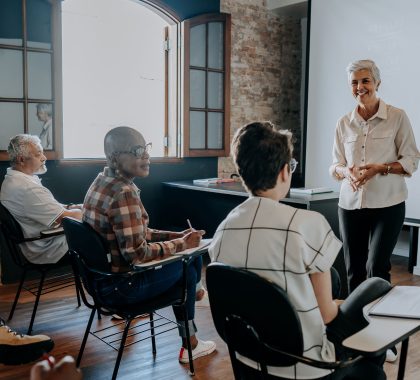- (+234) 07051515393
- hello@flamers.org
- Lagos Nigeria
Flamers Adult Education Program (FAEP)

FAEP
Program Overview
The Flamers Adult Education Program is the training program for adults and individuals who desire to learn how to read, write, communicate, and fit in properly in society's everyday conversations through the acquisition of useful literacy, numeracy, and life skills
Goals of the Program
- Enable learners to read and write simple sentences in English (and optionally Yoruba).
- Build basic numeracy skills useful for daily life (trading, money management, measurement).
- Improve functional literacy (reading signs, filling out forms, reading labels, and writing SMS messages).
- Encourage confidence and lifelong learning.
Areas Of Focus
Literacy
Everything about reading and writing, and comprehension
Numeracy
Everything about numbers, arithmetic, money matters, etc.
Life Skills Integration
From basic health tips, road signs, safety tips, trading conversations, etc
Core Curriculum Outline
1. Literacy (Reading & Writing)
- Stage 1: Foundations
- Alphabet (English, Yoruba phonics if needed).
- Letter-sound recognition.
- Basic words: names, objects, numbers, signs.
- Writing: tracing letters, writing names, copying short words.
- Stage 2: Words & Sentences
- Sight words (common everyday words: market, school, church, Lagos, Naira, buy, sell).
- Constructing short sentences (“I am going to market”, “This is my name”).
- Reading short passages (local context: market stories, health tips).
- Writing: filling simple forms, writing short sentences, and SMS practice.
- Stage 3: Functional Literacy
- Reading newspaper headlines, road signs, and bills.
- Writing applications, notes, and addresses.
- Listening comprehension: short stories read aloud, learners retell.

2. Numeracy
- Stage 1: Foundations
- Counting 1–100 (English & Yoruba).
- Number recognition (digits, words).
- Basic addition and subtraction.
- Stage 2: Everyday Arithmetic
- Multiplication & division (practical examples: buying and selling).
- Money handling (Naira notes/coins).
- Measurements: length, weight, time.
- Stage 3: Applied Numeracy
- Household budgeting.
- Profit & loss (market context).
- Simple percentages (discounts, savings).
- Reading charts or tables.

3. Life Skills Integration
- Health literacy (reading prescriptions, hygiene tips).
- Civic literacy (voting process, rights & responsibilities).
- Digital literacy (using a phone, WhatsApp, SMS, mobile money).
- Business basics (record keeping, simple bookkeeping).

Cycles & Methods
Learning Cycle Structure
Adults learn best with short, focused lessons and lots of practice.
Here’s a recommended structure:
- Cycle Duration: 12 weeks (3 months) per learning cycle.
- Sessions per Week: 2–3 times a week (so it’s not overwhelming).
- Session Length: 1.5 – 2 hours (adults tire quickly, but this allows practice).
- Learning Levels:
- Beginner (zero literacy) → focus on alphabet, simple numbers.
- Intermediate (can read/write a little) → sentences, applied numeracy.
- Advanced (towards functional literacy) → practical reading/writing and problem-solving.
So in one year (4 cycles), a committed learner can move from zero literacy to being functionally literate and numerate.
Teaching Methods
- Bilingual approach: Start with Yoruba (or the local language) explanations for comfort, then gradually shift to English.
- Participatory: Role plays, market examples, storytelling.
- Peer learning: Group reading, pair work.
- Practical tasks: Reading bus signs, writing shopping lists, calculating change.
